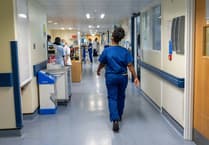By the time you read this column, you may already have heard the Chancellor deliver his “fiscal statement”, spelling out his plans for higher taxes and spending cuts.
I’m writing this on Monday evening, but there are some things I already know for sure.
First of all, he will blame the war in Ukraine and the COVID pandemic for our dire economic circumstances, but the truth is that other countries have faced the same global challenges and are not in such bad shape.
The UK is now the only G7 economy which remains below its pre-pandemic level, and it is now predicted to keep shrinking for the whole of 2023, making it the longest recession since UK records began…
So, why has the UK fallen behind?
Our economy shrank much further than others during the pandemic because, (despite claiming they “got the big calls right”) the delays in starting lockdowns actually caused them to last longer and do more economic damage.
For years, our economic growth has been driven by cheap labour from the EU. Those who supported Brexit said we would fill this gap by “upskilling” our own workforce, but the Government in fact cut funding for the education and training which could have made this possible.
The EU workforce has been locked out, but the UK workforce hasn’t been readied to pick up the pieces. Worse still, as the NHS and social care grind to a halt due to staff shortages, millions of people waiting for hospital treatment or caring for elderly relatives have been forced to take time off work.
Companies trading with the EU have seen costs rise in both directions, whilst the promised trade deals with India and the USA have failed to materialise.
Investing in insulation, renewable energy, low-carbon heating systems, electric vehicles and decarbonised industry would have been a great way to spend money while interest rates were low over the past decade. This would have created millions of skilled jobs, reduced carbon emissions and protected us from global price shocks. Unfortunately, successive Conservative Governments have left us exposed, and have even helped fossil fuel companies to rake in record profits.
As is so often the case, what is true for the country as a whole is especially true for Cornwall. We face the longest hospital waiting lists, the worst social care crisis and the most severe fuel poverty; whereas we stand to gain the most from a green energy revolution: We have the most wind and the most sunshine; our cars cover more miles and our granite homes need more insulation.
If the Government invested in sustainable energy, Cornwall could have a bright future.
Unfortunately, with the party in open warfare against itself, and with a track record of U-turns, lenders have no confidence that the Government will stick to any plans it makes nor repay any money it borrows.
The only way to build a brighter future is to call a General Election and vote for a better Government.



